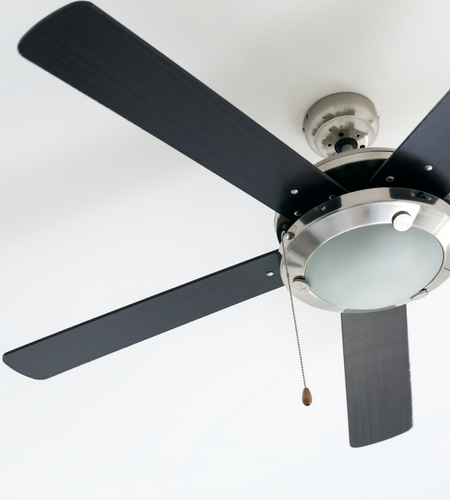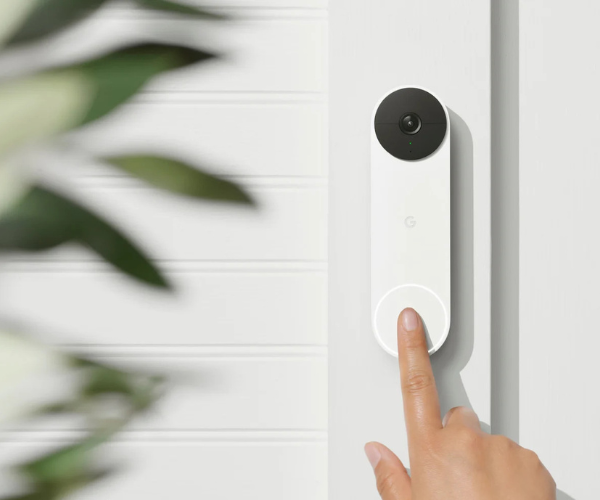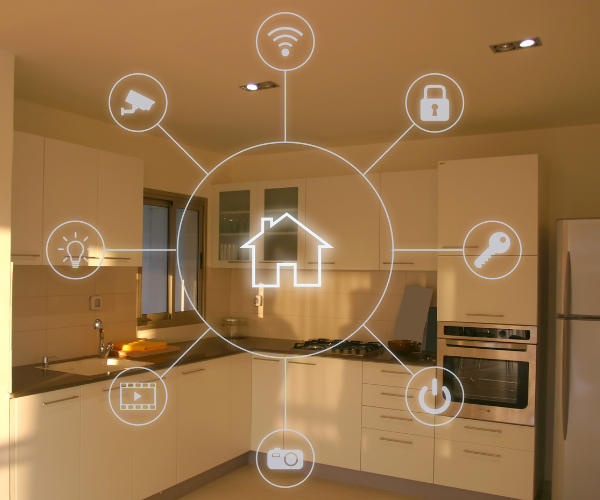 Free delivery on orders over £75 ex VAT
Free delivery on orders over £75 ex VAT Free click & collect from branches nationwide
Free click & collect from branches nationwideSmart bulbs are designed to provide a more convenient, energy-efficient, and secure way to light our homes that can be controlled remotely from anywhere using a smartphone, tablet, or smart hub. Over time, Smart Bulbs have become a staple within modern smart home systems across the UK.
Smart Bulbs can be programmed to turn lights off and on at certain times, change the dimness or brightness of the light and, for some models, customise the light's colour.
Throughout this article, we answer several frequently asked questions regarding Smart Bulbs to help installers, homeowners and developers alike and provide the resource for anyone wanting to learn more about smart bulbs.
What Types of Smart Bulbs are Available?
Currently, many different types of smart bulbs are available, each with unique features and benefits. When choosing a smart bulb, it is essential to consider your personal requirements and budget. Here are a few of the most popular styles available today in the UK market:
Wi-Fi Smart Bulbs - This type of Smart Bulb can connect directly to your home's Wi-Fi network, enabling you to control your smart bulb from anywhere using a smartphone or tablet, such as the 4Lite WIZ range - these energy-saving bulbs provide added functionality with increased security (as lights can be turned on/off to mimic you being home, even when you’re not), night lights, and colour changing functionality. They’re a great way to save on electric bills, and are designed to outlast most regular light bulbs.
One of the most significant disadvantages of using Wi-Fi Smart Bulbs is how reliant they are on your Wi-Fi connection. Without a reliable Wi-Fi connection, most will revert to behaving like normal light bulbs.
Bluetooth Smart Bulbs - These are a suitable choice if you are looking for a smart bulb that is more affordable. Bluetooth bulbs can connect to your smartphone or tablet, allowing you to control them when you're within range.
One of the main downsides of bluetooth smart bulbs is that they are typically more expensive than traditional bulbs, and you will need to purchase a separate hub or bridge to use them properly.
Additionally, because these bulbs rely on Bluetooth connectivity, they may not work as well if you have a weak or spotty Bluetooth signal.
Zigbee Smart Bulbs - Zigbee Bulbs are an ideal choice for homeowners with more significant properties with numerous smart home devices, as they use a low-power wireless protocol called Zigbee.
Investing in Zigbee smart bulbs can be more expensive than traditional light bulbs, and they may only be compatible with some types of light fixtures or dimmer switches.
Thread Smart Bulbs - Thread bulbs are also ideal for large properties; however, they use a newer wireless protocol designed to be more reliable and energy-efficient than Zigbee.
In addition to these different types of Smart Bulbs, some can also come with added features such as;
- Colour-changing
- Dimmable
- Tunable white balance
Regarding Thread Smart Bulbs, one of the main concerns is that some consumers may find the setup process to be more complicated than other types of smart bulbs.
Are Smart Bulbs energy-efficient?
Yes. Smart bulbs use LED technology, making them far more energy-efficient than traditional light bulbs. Smart bulbs can help to save you money on your energy bills because, in contrast to conventional incandescent bulbs, LED bulbs consume around 75% less energy and have an approximately 25 times longer lifespan.
How Long can Smart Bulbs Last?
Smart bulbs provide anywhere from 15,000 to 25,000 hours of usage; this can alter depending on the make and model of the Smart Bulb, plus how often it is used.
There are a few essential factors that can help extend the life of a Smart Bulb, making them last as long as possible:
- Avoid turning them on and off too often - Turing your Smart Bulbs on and off frequently can shorten their lifespan, as Smart Bulbs are designed to be left on for long periods.
- Avoid using them in extreme temperatures or humidity - Smart bulbs can get damaged by extreme temperatures or moisture, so avoiding using them in these conditions is recommended.
- Update the firmware regularly - The firmware is the software that controls the smart bulb. Updating the firmware will help improve the bulb's performance and extend its lifespan.


Will smart bulbs work in any fixture?
When shopping for smart bulbs, you'll find a variety of shapes and sizes available, with A19 being the most common for standard fixtures. However, keep in mind that smart bulbs typically use less power than traditional bulbs, so be sure to check the fixture's requirements before making your selection.
Below are some commonly used fixtures where smart bulbs are perfect for installation:
- Table lamps
- Floor lamps
- Recessed lighting
- Track lighting
Below are some examples of fixtures that are not compatible with smart bulbs:
- Exterior fixtures
- Dimmable fixtures
- Incandescent fixtures
Can Smart Bulbs be Used Outdoors?
Smart bulbs can be used in outdoor fixtures. Nevertheless, you need to ensure that you get a bulb specifically designed for outdoor use. This is because smart outdoor bulbs are typically constructed from durable materials that can resist the elements such as water, wind, and rain. They also provide a broader range of features than indoor smart bulbs, such as the ability to customise colours and a useful dimming feature.
Can Smart Bulbs Work Without Wi-Fi?
Without a doubt, some Smart Bulbs on the market do not need to rely on Wi-Fi connectivity but instead use Bluetooth to connect to your smartphone, allowing you to keep control of your devices even when your Wi-Fi network is down.
There are some limitations to using Bluetooth-only smart bulbs. For example, you can only control them from within your home due to their limited range. Furthermore, you can't combine them with other smart bulbs and devices to create a complex smart system in your property.
Many Wi-Fi smart bulbs revert to acting like a normal light bulb without an internet connection, meaning they’ll switch on/off at the wall switch, but you won’t be able to turn it on/off with your phone or smart devices until internet connection is restored.
Can Smart Bulbs work in Ceiling Fans?
Absolutely, smart bulbs can be used in ceiling fans as long as they are compatible with your fan. However, some ceiling fans have a voltage-limiting feature that may affect the smart bulb's performance.
Choosing the right size of smart bulb for your fan; A19 or E26 bulbs are commonly used for ceiling fans. Keep in mind that the fan's constant movement may reduce the bulb's lifespan.
Can Smart Bulbs be used with a Dimmer Switch?
Using a separate switch alongside a Smart Bulb is not recommended since you can switch the bulb on & off via your smartphone or tablet app.
Additionally, you can fully customise the bulb's colour and dimming settings; however, if you use both, the dimming mechanisms may conflict, resulting in the bulb to potentially start flickering.
If you have a dimmer switch in place already, it is best to leave the switch fully on or off to avoid this from happening.

Key Takeaways
Smart Bulbs are the latest innovation in lighting technology, and more and more installers recommend this smart option to customers and clients alike. These bulbs offer exciting features like colour-changing options, scheduling, dimming, and can also help you save on your energy bills over time.
Looking for more information on smart bulbs and smart home technology? Take a look at our guide on how to set up a smart home here.
We hope this information has given you the confidence to explore the world of Smart Bulbs. If you need additional advice, please reach out to our expert support team, or visit your local City Plumbing branch.
Other articles

How you can Benefit with a Smart Doorbell
24 Aug 2023 ・ 6 mins

5 Benefits of Smart Home Technology
17 Aug 2023 ・ 5 mins

Smart Security: How installers can make homeowners feel more secure
31 Jul 2023 ・ 4 mins

5 Myths About Smart Homes Answered
13 Jun 2023 ・ 5 mins

